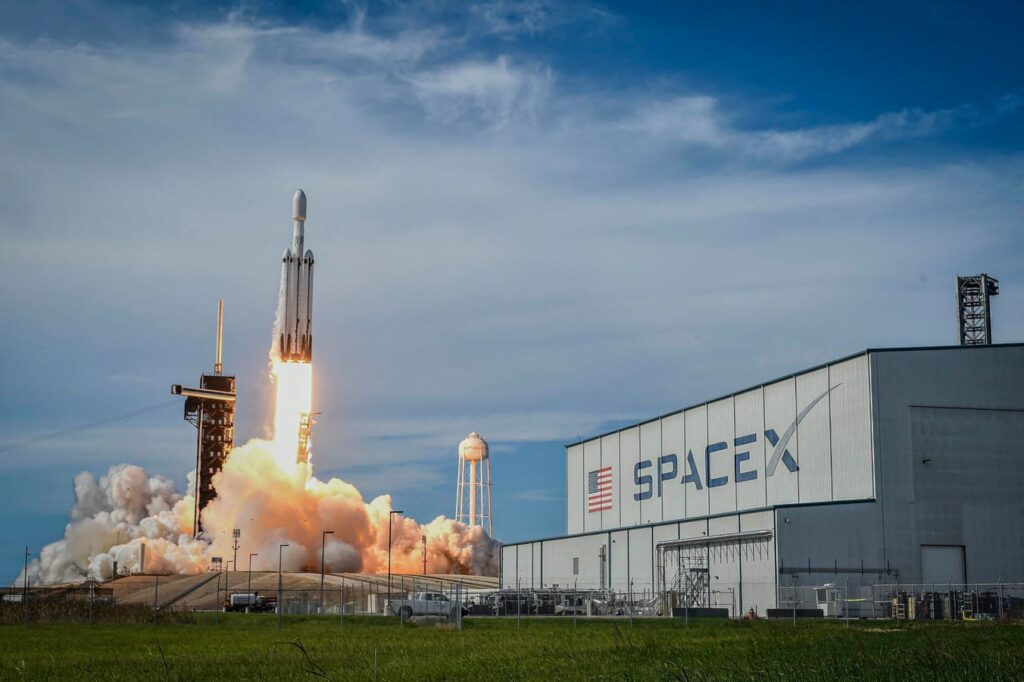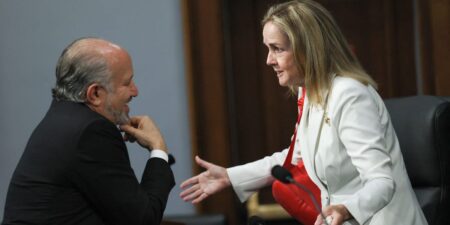SpaceX, Elon Musk’s flagship aerospace company, is now valued at a staggering $350 billion following an internal employee share buyback in December 2024 — making it the most valuable private company in the U.S. and arguably one of the most strategically important. But that massive valuation now faces an unexpected source of risk: political tensions between Elon Musk and President Donald Trump.
While SpaceX remains technically dominant and commercially indispensable, rising political hostility could have real implications for federal contracts and regulatory approvals — both of which underpin a large portion of the company’s future cash flow expectations.
A Valuation Built on Dominance — and Dependence
SpaceX’s rise to a $350 billion valuation is grounded in two core pillars:
- Global leadership in launch services: Through Falcon 9, Falcon Heavy, and the emerging Starship platform, SpaceX controls over 60% of all global orbital launches.
- Explosive growth in satellite internet: The company’s Starlink unit now has over 5 million subscribers, with annualized revenue exceeding $3 billion and projections that it could eventually surpass $30–50 billion globally.
But valuation is not just about technology — it’s also about contracted revenue and political alignment. SpaceX’s most critical customers remain NASA, the Department of Defense, and the U.S. Space Force, with long-term contracts that support everything from lunar missions to national security payloads. Those relationships are deeply strategic — and politically sensitive.
The Political Risk: Trump vs. Musk
Recently, tensions between Elon Musk and Donald Trump have become unusually public. Their disagreement — reportedly over political influence, media ownership, and policy alignment — has escalated to the point where Trump has hinted at a possible “review” of government contracts involving Musk-linked companies if he returns to office.
While this could be political bluster, the risk is not theoretical. Federal procurement decisions, particularly in defense and aerospace, can be influenced by the political environment. A freeze or slowdown in contract flow, more stringent regulatory reviews, or even unofficial blacklisting from future missions could materially affect the assumptions underlying SpaceX’s valuation.
Moreover, Starlink, while more commercially independent, relies on spectrum allocation, regulatory clearance, and foreign licensing — all of which could be indirectly affected by U.S. political posturing.
Valuation at Risk?
At $350 billion, SpaceX is being valued at levels normally reserved for profitable, publicly listed tech giants. Much of that valuation assumes:
- Continued growth of Starlink into a telecom-scale business;
- Successful scale-up of Starship for deep-space and mass-launch applications;
- Ongoing dominance in both commercial and government launch markets.
But if even partial disruption hits SpaceX’s government revenue pipeline, or if regulatory friction slows Starlink expansion, the company’s growth story would lose key drivers. And because the $350 billion valuation came from an internal buyback — not an open market raise — it may not fully reflect the pricing discipline of institutional capital.
So, What Happens Now?
While SpaceX is not in immediate danger, the political noise introduces a new kind of valuation overhang. Pre-IPO investors, secondary market participants, and regulators will all be watching to see:
- Whether Trump’s remarks evolve into policy;
- Whether federal agencies continue awarding contracts at the current pace;
- Whether Starlink’s global rollout faces headwinds in geopolitically aligned countries.
Until recently, SpaceX’s risks were mostly technical — around rocket performance, satellite economics, or project execution. Now, for the first time, politics may be its biggest threat.
Bottom Line
SpaceX at $350 billion reflects world-class engineering, unmatched market position, and transformative long-term potential. But that valuation also depends on a stable political and regulatory environment — especially when so much of its revenue is tied to U.S. government partnerships.
If the feud between Trump and Musk intensifies, it could lead to subtle but meaningful shifts in contract behavior, regulation, and investor sentiment. That wouldn’t bring SpaceX crashing down — but it could force a re-rating of expectations in both private and future public markets. As such, the Trump–Musk dynamic may represent the most unexpected threat yet to SpaceX’s soaring valuation.
Investing in a single stock/asset can be risky. Conversely, the Trefis High Quality (HQ) Portfolio, which comprises 30 stocks, has a history of comfortably outperforming the S&P 500 over the past four years. Why is that? As a group, HQ Portfolio stocks delivered superior returns with lower risk compared to the benchmark index, creating less of a turbulent experience as reflected in HQ Portfolio performance metrics.
Read the full article here
















